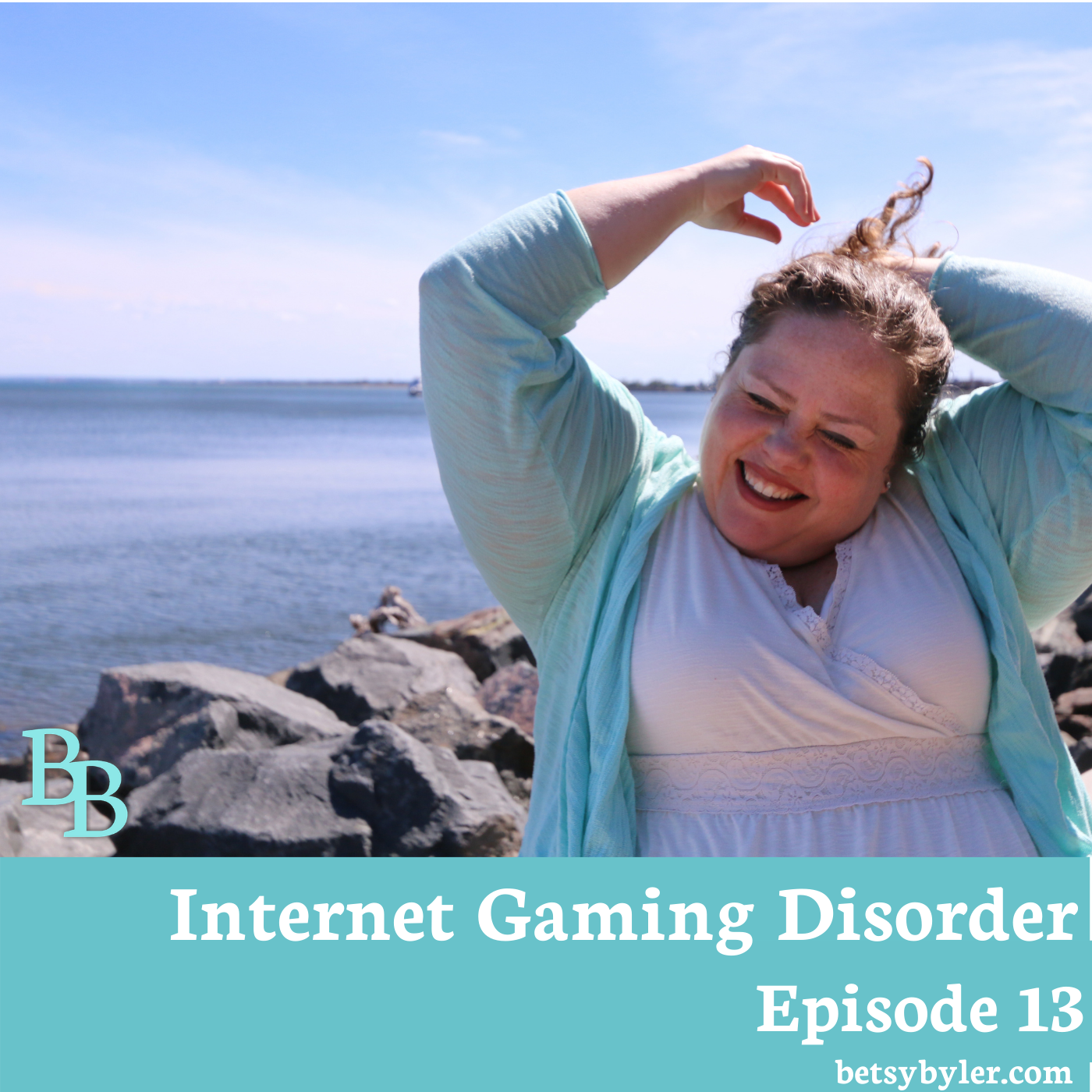Internet Gaming Disorder-Is it addiction?
- Author
- Betsy Byler
- Published
- Mon 14 Dec 2020
- Episode Link
- https://betsybyler.libsyn.com/internet-gaming-disorder-is-it-addiction
- What does the DSM V have to say about internet gaming?
- What types of games are part of this proposed disorder?
- Is internet gaming addiction a real issue?
Video games are often seen as sucking away people’s time and the popularity of games is at an all time high with no sign of stopping. It’s hard to tell what it would look like if someone had a “problem” with video games. The DSM has a proposed disorder and in some parts of the world this diagnosis would potentially be given more often. In the States, the prevalence is estimated to be small.
In this Podcast:
- Internet gaming disorder (IGD) is not officially part of the DSM V. It is included as a subject that “needs further research.”
- The term “internet gaming” is referring to video games.
- The name internet gaming is misleading as many games that can take a tremendous amount of time aren’t on the internet at all.
- There are several types of games (and subtypes). This list is meant to be a general overview.
- The main types of games are single player (both off and online), MMO (massive multiplayer online), RPG (role playing games), FPS (first person shooters), mobile games (played on phones and tablets), Battle Royale .
- There are multiple types of single-player games. Additionally many games have both single and multiplayer versions.
- The type of game that a person plays is very specific to each gamer and they will likely be immersed in the culture of gaming around that type of game.
- The proposed symptoms for Internet Gaming Disorder are nearly identical to the symptoms of substance use disorder, but the wording is for gaming instead of substances.
- People who struggle with gaming too much share other characteristics. Some examples are not going to work/school in order to engage in gaming or recover from a game night (needing to sleep because the person was up all night), spending all of their time focused on the game in a way that they are neglecting other things, spending more money than they can comfortably afford to spend, to name a few.
- The key in evaluating gaming in your clients is to find out if there is distress or decompensation in functioning as a result.
- We should be cautious not to confuse enthusiastic engagement with pathology.
- IGD is likely real. The prevalence is said to be about .3-1% of all people who engage in these types of games. There is a higher prevalence in some Asian countries and treatment centers exist to treat IGD.
